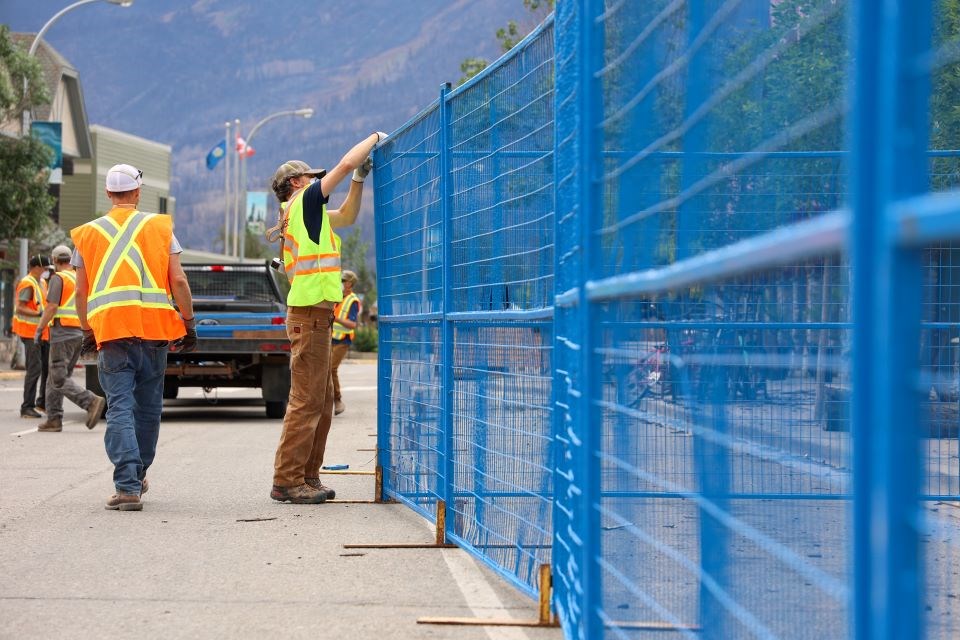Asbestos from destroyed buildings in Jasper is not a threat to general air quality, says Alberta Health Services.
Dr. Kristin Pon, medical officer of health with AHS, told Jasper council at its Tuesday (Sept. 3) meeting that asbestos was not routinely monitored in the outdoor air quality monitoring, and it wasn’t a routine contaminant that was typically a concern to most Canadians.
“In general, depending on this situation, it would be up to … whoever is managing the restoration [of a building] and the restoration contractor to ensure that proper procedures are being followed to make sure that asbestos or products that could contain asbestos are being disposed of and handled properly,” Pon said.
According to Pon, the major risk is exposure to high levels of asbestos over long periods of time, particularly with occupation exposures.
“And the recommendation from our end would be to ensure that, again, proper processes are followed for restoration, unless there’s concern about there being large clouds of dust that could contain asbestos,” she said.
Michael Fark, director of recovery with the Municipality of Jasper, confirmed steps would be taken during the remediation and debris removal process, including dust suppression, to ensure that Jasper’s air quality is not adversely affected.
Coun. Scott Wilson asked if the municipality should consider setting up air quality stations that could test for hazardous materials such as asbestos.
Fark assured the asbestos was confined to the total loss sites and not easily disturbed by the wind, and there was only a risk when the asbestos was disturbed during the debris removal process.
“As long as the asbestos is not disturbed and in place, it is not permeating into the general air. So, it’s during, essentially, the removal process that the abatement is required,” he said.
Occupational Health and Safety will be on-site working with contractors to ensure that all hazardous material procedures are in place and being correctly followed.
As for air quality in general, Pon noted short-term exposure to high levels of pollution can lead to irritation of the lungs and airways, feeling short of breath and worsening of chronic diseases.
“Over time, with prolonged exposure to high levels of pollution, there can be longer term impacts on heart health, lung health and possible effects on other body systems as well, such as the nervous system,” she said.
“The groups of people most at risk of short-term health impacts of poor air quality include older adults, young children, pregnant individuals, people with chronic heart and lung conditions and people who are active outdoors.”
The Air Quality Health Index (AQHI) rates local air quality on a scale of one to 10+ to indicate the level of relative health risk, with a higher number meaning a greater health risk.
Over the last few weeks, the AQHI has been between one and three for Jasper.
Pon said AHS was not involved in any re-entry decisions and was providing support related to health and AHS sites.
“As it pertains to the outdoor air quality, I’m reassured that the AQHI is low,” she said.
If there is concern about outdoor air quality, AHS will issue a special air quality statement or an air quality advisory, and individuals should follow the guidance associated with that statement.
“And generally, those recommendations are around reducing physical activity outdoors, reducing exposure to outdoor air – so things like closing windows and doors – and individuals can choose to wear a respirator or mask depending on their personal circumstances,” Pon said.
The AQHI Map can be viewed online, and more resources are available at AHS’s website.




